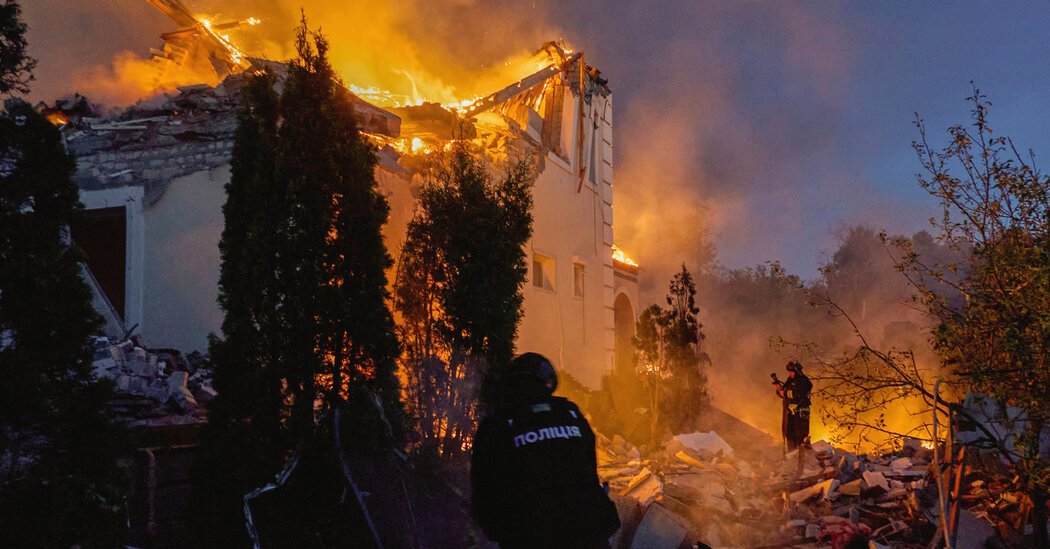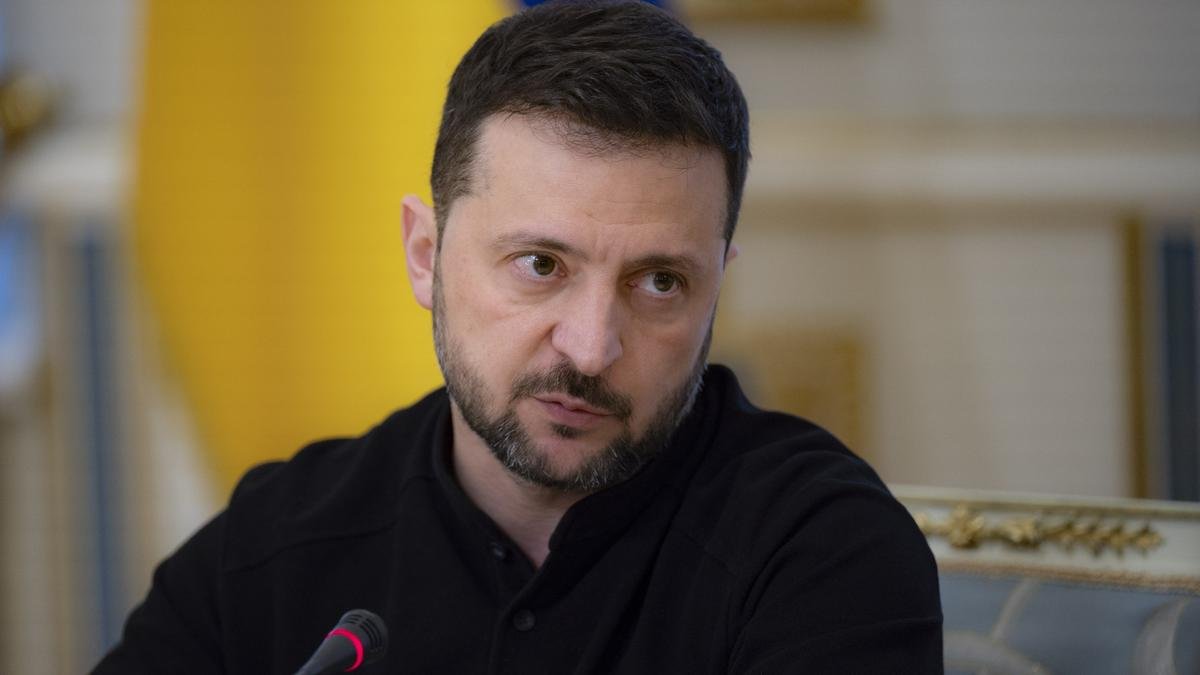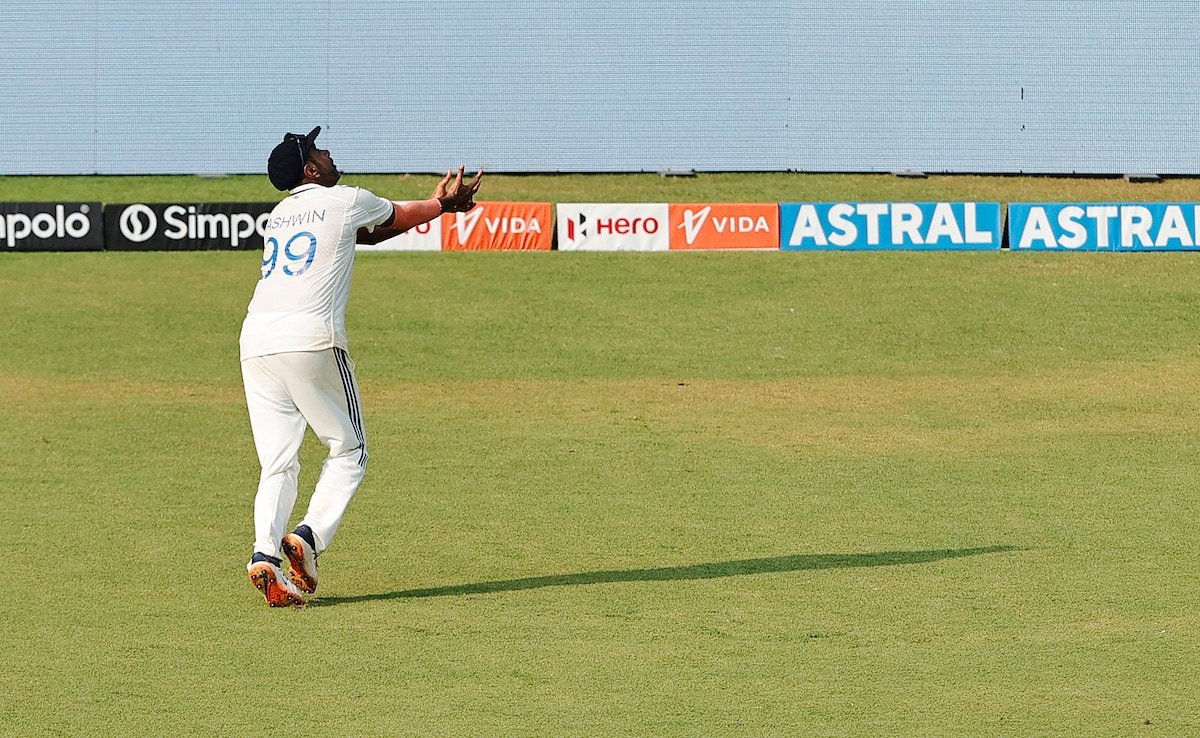
Ukraine rushed reinforcements to its northern border on Friday after Russian forces attempted to break through Ukrainian lines along several sections, applying new pressure on forces already stretched thin along a 600-mile front.
The Russian assaults began at around 5 a.m. Friday with massive shelling and aerial bombardments of Ukrainian positions followed by armored columns trying to punch through at several points along the border, according to a statement from Ukraine’s Ministry of Defense.
“As of now, these attacks have been repelled, and battles of varying intensity are ongoing,” the ministry said. “To strengthen the defense in this sector of the front, reserve units have been deployed.”
President Volodymyr Zelensky, during a briefing in Kyiv with his Slovak counterpart, Zuzana Caputova, said that Russian forces were met with “our troops, brigades and artillery,” adding: “There is a fierce battle in this direction — we met them with fire.”
Still, fighting was continuing Friday afternoon. Ukrainian forces are severely depleted and sorely lacking ammunition all across the front, and it was unclear what kind of resistance they could put up against a sustained Russian advance, if it came.
The breadth and intent of the Russian push along the border also remained unclear. Military analysts have said Russia may be trying to force Ukraine to expend valuable resources in defending the region just as Russian assaults in eastern Ukraine are intensifying.
Ukrainian officials and Western military analysts have said that Moscow probably lacks the combat power to capture Kharkiv, Ukraine’s second largest city, which is 20 miles from the Russian border. On Friday, one senior U.S. military official described the new Russian advances more as probing than a full-on press, but acknowledged that the “fog of war” there made the situation murky.
“The initial cross-border attacks appear to be mostly infantry and may not be the main Russian effort,” said Michael Kofman, a senior fellow in the Russia and Eurasia program at the Carnegie Endowment for International Peace in Washington. He added that the attack was “more likely to serve as a fixing effort, straining Ukrainian defense which already suffers from a lack of manpower.”
Russian officials have not commented on the incursions.
It is unclear if Russia captured any territory. A senior Ukrainian commander said that Kyiv’s forces had stopped one Russian incursion in the direction of a village called Lyptsi, less than a mile from the border in the Kharkiv region. That area was now considered a gray zone, meaning the fighting was too intense and the situation too fluid to say who had control over the land.
The Kharkiv regional administration urged people from the villages close to the border to evacuate. Some, like Vovchansk, which has been badly shelled throughout the war, have been nearly empty for months.
A doctor at the hospital in Vovchansk, which is about four miles from the Russian border, said there was intense fighting all around the small town.“We’re currently evacuating people from the hospital,” he said, asking that his name not be used because he feared for his safety. “They’re hitting very hard and destroying everything.”
He said that Ukrainian soldiers appeared to be preventing an advance into the town but that the Russians were attacking with everything, including tanks, armored fighting vehicles and warplanes. He said the hospital was being evacuated. Many of the small villages in the border regions have been being evacuated for months as shelling intensified and Ukrainian officials said on Friday those efforts were continuing.
President Vladimir V. Putin has made it clear that he wants his army to push the Ukrainians back from the border to create what he called “a sanitary zone,” both to protect the Russian towns and cities across the border from shelling and to allow him to maintain the areas as a staging ground for Russia’s operations in occupied parts of eastern Ukraine.
Russian forces failed to take Kharkiv in the first weeks of the war and were almost completely driven out of the Kharkiv region in a Ukrainian counteroffensive in the fall of 2022. Hundreds of thousands of people who fled the city returned to their homes and started to rebuild their lives.
But in recent months, Russia has stepped up its bombardment of the city, targeting it almost daily with missiles, drones and powerful guided bombs that have taken aim at energy infrastructure, industries that play an important role in the production of weapons, and residential neighborhoods.






